Tony Estanguet, president of the Paris Olympic Committee, has revealed more details of the 2024 event, which organisers want to be open to as many people as possible and celebrate the culture and beauty of Paris, as well as celebrating sport.
Speaking in a briefing organised by the Anglo-American Press Association of Paris, Estanguet said: “We want to bring the sports out of the stadiums and into the city to include the iconic landmarks of Paris.
“So we are working with museums and other venues to organise competitions at landmark sites – for example fencing will be in the Grand Palais, archery and para archery at Les Invalides, volleyball and blind football at the Eiffel Tower.”
MAP Here is where events will be held at Paris Olympics
The opening ceremony will also be open to as many people as possible – with space for at least 600,000 spectators.
Rather than holding it in the Olympic stadium as is traditional, in Paris the opening ceremony will be along the Seine, allowing organisers to showcase some of Paris’ most famous landmarks and also providing space for 600,000 spectators in stands along the banks of the river.
The spectacle will include 160 boats, moving 6km from the Pont d’Austerlitz to the Pont d’Iéna – passing the Eiffel Tower, Notre-Dame (which will, if all goes according to plan, be fully restored by 2024) and the Louvre along the way, with events staged in key locations along the route.
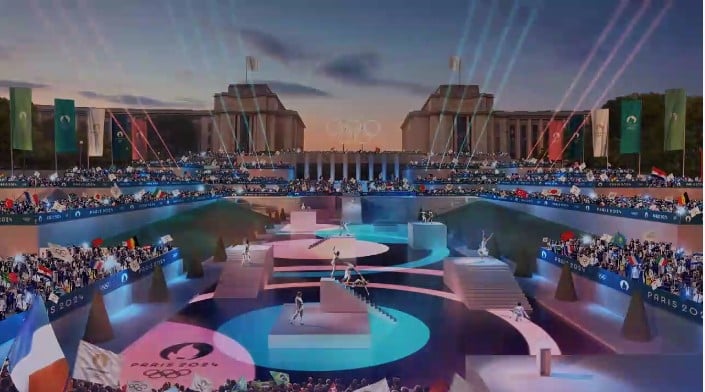
Eighty big screens and speakers will relay the events live to spectators in Paris.
The ceremony will be held on July 26th, 2024.
Organisers have also pledged to include as many affordable tickets as possible, with €24 tickets available for all Olympic events and a total of 1 million €24 tickets. Half of all tickets sold will cost less than €50.
For the Paralympics, tickets will be on sale from €15 and half of all tickets on sale will cost €25 or less.
Estanguet said: “We know that of course that this price is not affordable to everyone but if you compare it to other sporting events or going to a concert we think this is a good price.”
The marathon event will also be open to non-elite athletes, in another Olympic first.
Tickets for the Olympics will go on sale in February 2023, and the Paralympic tickets will go on sale in Autumn 2023. the registration process for games volunteers will open at the beginning of 2023.
Although the games are mostly being held in Paris, there are multiple events held outside the capital – including surfing which will be held in the French overseas territory of Tahiti, roughly 15,000km from Paris.
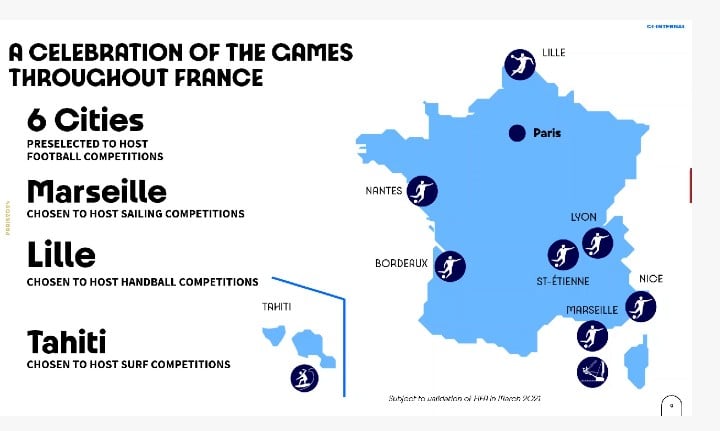
Equestrian events will be held outside Paris at the Palace of Versailles, while sailing be held in Marseille and handball in Lille. Meanwhile the football tournaments will be spread around 6 cities – Marseille, Nice, Lyon, Saint-Etienne, Bordeaux and Nantes.
Referring to the famous Paris-Saint-Germain v Olympique Marseille football rivalry, Estanguet remarked: “In a sporting sense it’s more usual to see competition between Paris and Marseille, but they are working together for the Games.”
There is also a programme known as Terre de jeux, in which towns can partner with the Games for Olympics-related events and the Olympic committee have created a sports programme for schools that involves 30 minutes of activity per day for primary schools – the intended legacy of the Games is not around physical infrastructure but in getting the nation moving and taking part in sports.
Keep in touch with all the latest news on the Games in our Paris 2024 section.

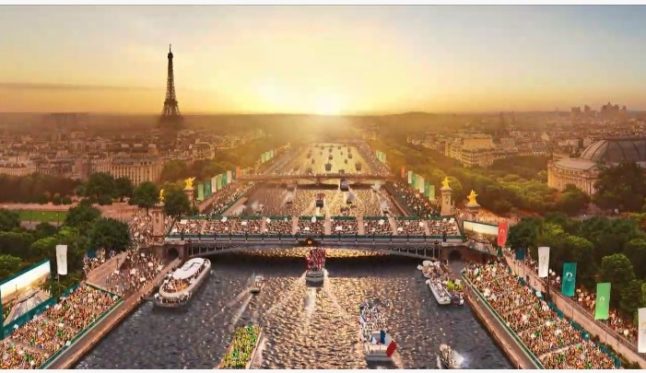
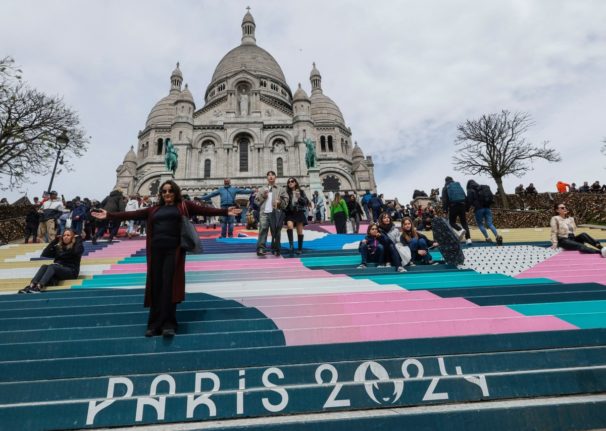
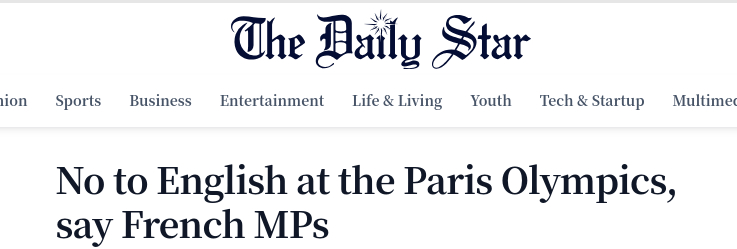
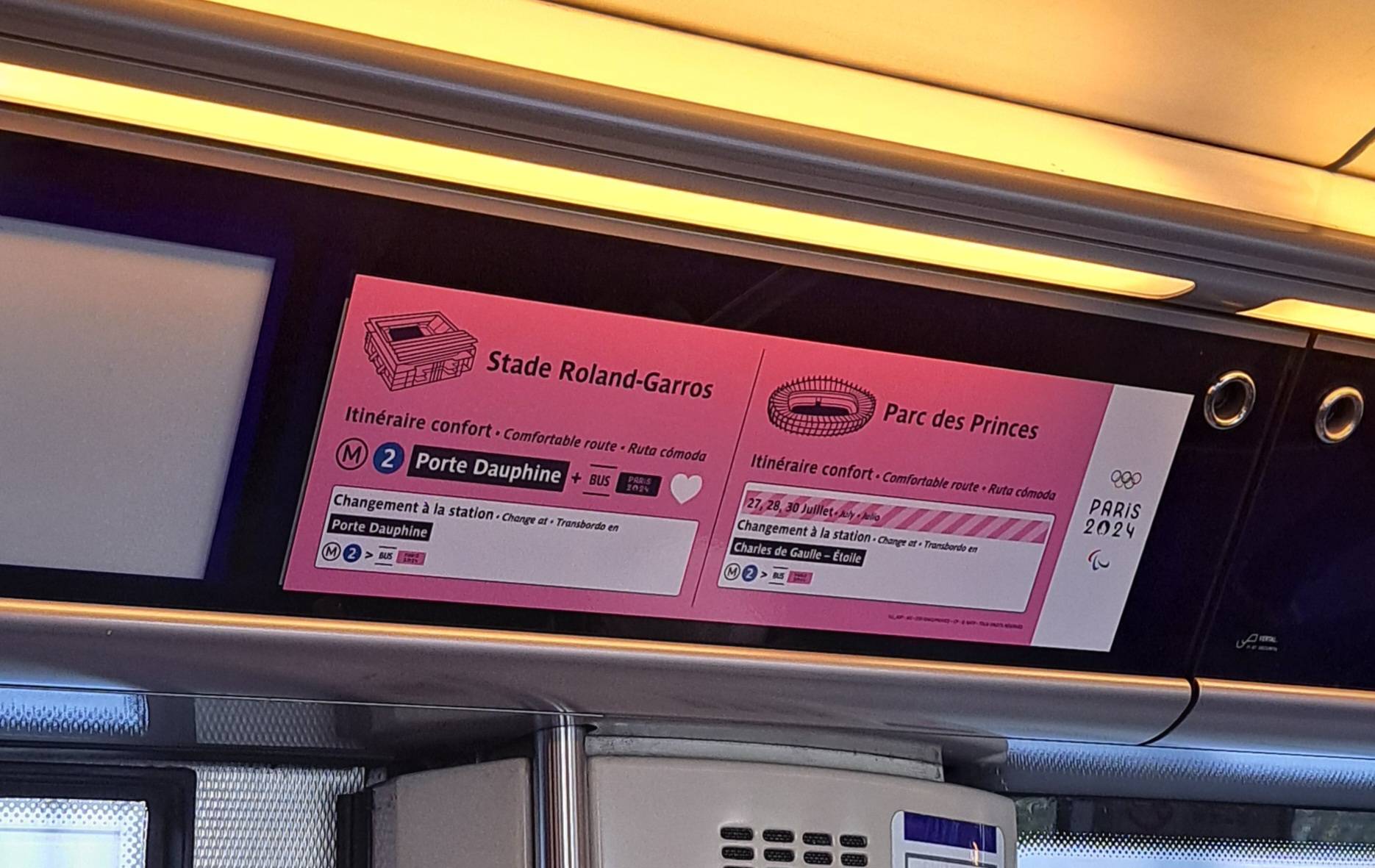
 Please whitelist us to continue reading.
Please whitelist us to continue reading.
Member comments